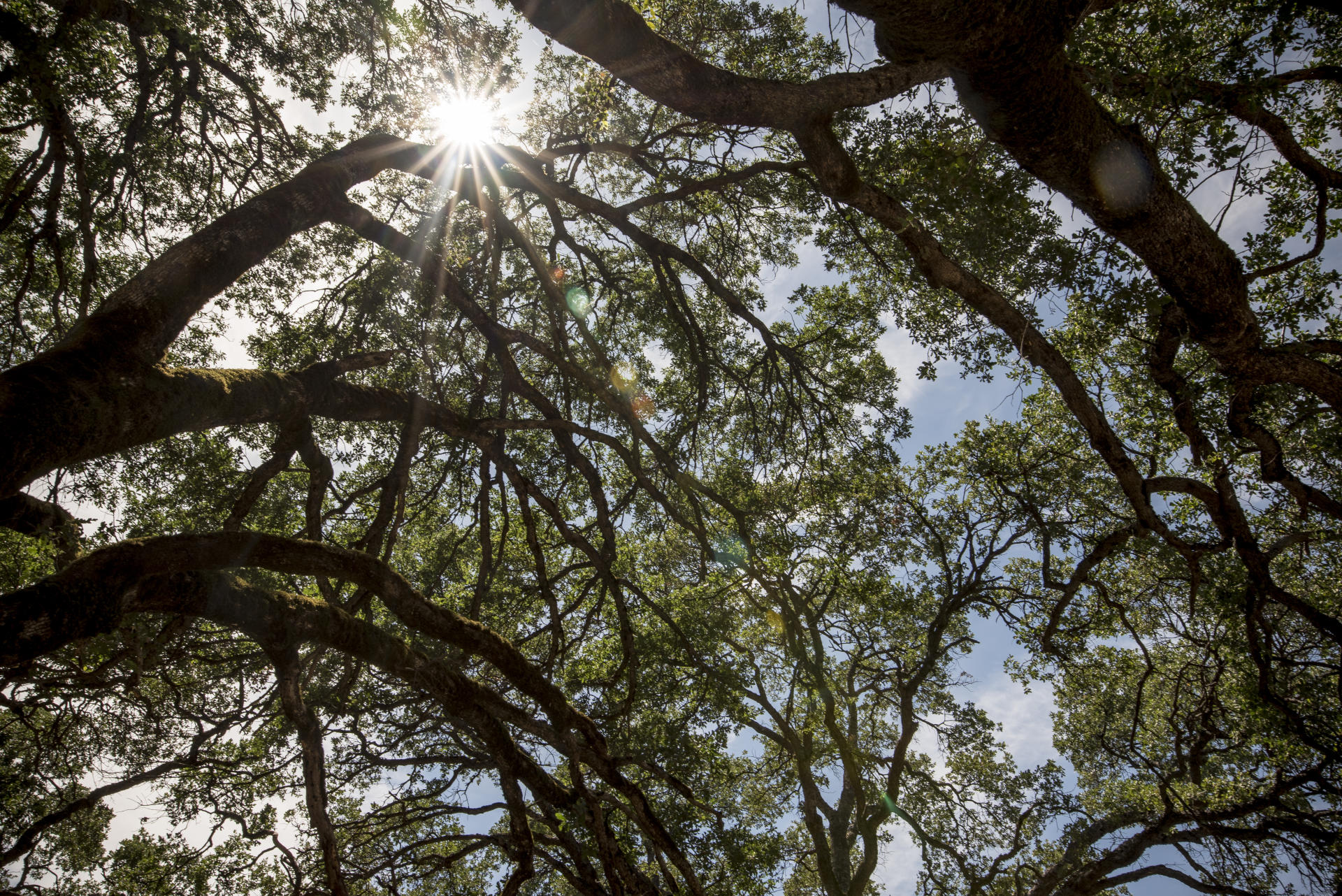University’s Ecological Reserves Receive Funding for Forest Therapy for Community Recovery Project

Big Chico Creek Ecological Reserve as faculty and staff learn about all of the work being done post-Camp Fire on and around the Reserve for Teaching & Researching the Camp Fire: Tour of the Big Chico Creek Ecological Reserve program on Monday, June 24, 2019 in Chico, Calif. (Jessica Bartlett/University Photographer/CSU Chico)
California State University, Chico’s Ecological Reserves have received funding through the North Valley Community Foundation and Butte Strong Fund for a pilot forest therapy project focused on increasing wellness services to Camp Fire survivors through opportunities for immersion in nature.
The “Forest Therapy for Community Recovery” project will aim to help individuals directly affected by the Camp Fire to recover from trauma and restore health and wellness. It is a collaborative effort with the Association of Nature and Forest Therapy Guides and Programs (ANFTGP) to train 15 local mental health providers, outdoor educators, and other health and wellness service providers to become forest therapy guides. Upon completion of their certification and required forest therapy sessions, these local professionals will possess the tools and experience required to facilitate healing through forest therapy into the future.
Forest therapy is inspired by the Japanese practice of shinrin-yoku and refers to the practice of spending time in forested areas for the purpose of enhancing health, wellness and happiness. Trained forest therapy guides invite participants to engage in activities to help them experience the natural environment with all their senses.
“Our community experienced an unprecedented traumatic event on November 8, 2018. Individuals deal with degrees of trauma in different ways, but we know all populations are affected—from schoolchildren to retirees—and our community members need support,” said Eli Goodsell, director of the Ecological Reserves. “This forest therapy will help those directly impacted by the Camp Fire and ultimately has potential to impact tens of thousands of Butte County residents as our forest therapy guides implement these nature-based practices throughout the rest of their careers.”
The funding totals $49,683, and training will begin in spring 2020. More than 450 Camp Fire survivors will initially be served through the forest therapy sessions conducted by each certification participant.
With area mental health experts reporting higher levels of stress, high blood pressure, and post-traumatic stress disorder among Camp Fire survivors, forest therapy can provide a path to improved well-being. Scientific studies have shown that the practice boosts immune system function, reduces blood pressure and stress, improves mood and ability to focus, and boosts energy level and better sleep.
The Association’s training draws on the latest medical research, new developments in the field of nature connection, and ancient traditions of mindfulness and wellness promotion. Every guided walk is an act of power and beauty, cultivating deep connections with transformational impacts on people and nature.
This practice has become the most-widely used framework for forest therapy in the world. As of 2018, the Association has trained over 700 guides who are guiding this practice in 46 countries.
This project will be completed in collaboration with Butte County Office of Education, Enloe Medical Center, Outdoor Education for All, Paradise Recreation and Parks District, the University of Washington and UCLA.
“With 3,950 acres of diverse habitat that is actively managed for forest health and wildland conservation, the Big Chico Creek Ecological Reserve is the perfect location for this important project,” Goodsell said. “By being less than 10 miles from Chico, our location provides the perfect atmosphere for forest therapy, while being close enough for participants to return home at the end of each day. We look forward to helping our community heal.”
Owned and operated by the CSU, Chico Research Foundation, the BCCER contains 3,950 acres of land, 4 1/2 miles of Big Chico Creek, and exceptionally diverse ecosystems. Since its creation in 1999, the Big Chico Creek Ecological Reserve has provided students and visitors with opportunities for hands-on experiences with nature and continues to be a hub for innovative research and land management best practices.


